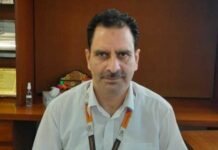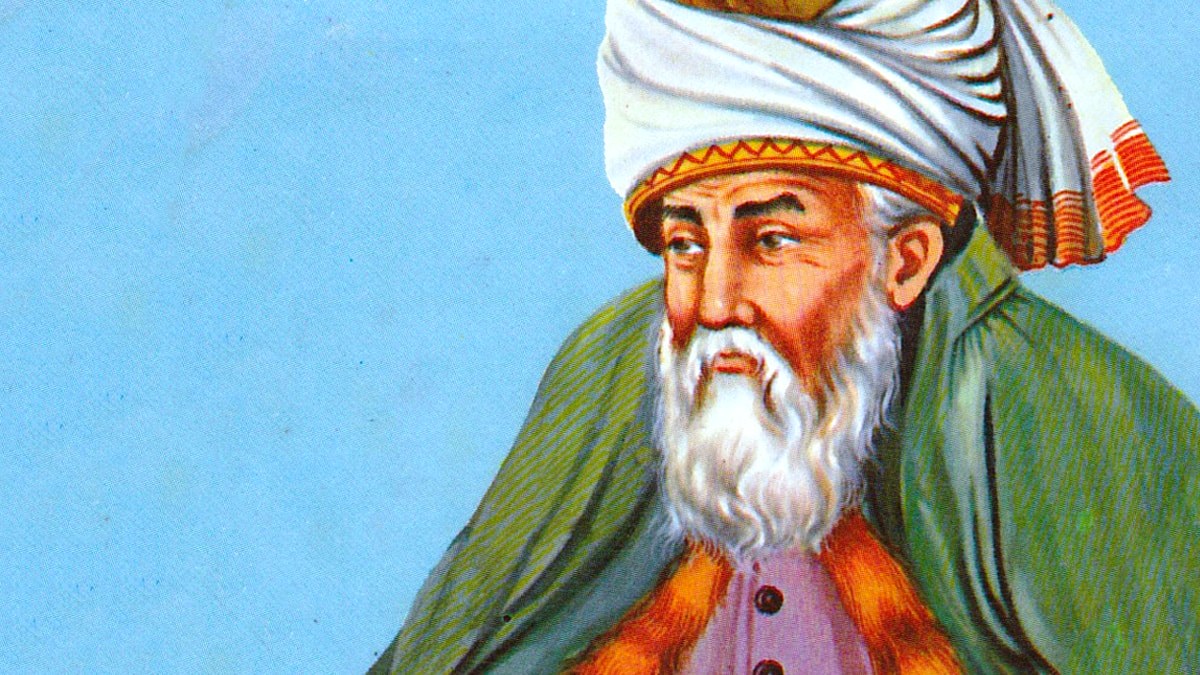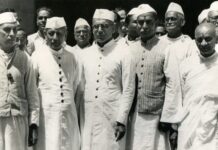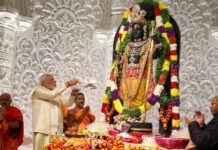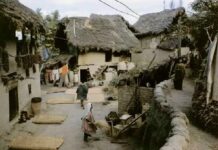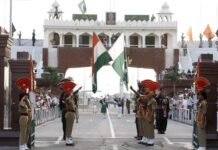“You may embarrass yourself. Writers usually take years before starting to write this book,” Deeksha, the daughter, told her father Bill K Koul, when he started writing his memoir about his days in Kashmir and the self-imposed exile in the early 1990s. “I intend to write only what is and has been in my head. If I don’t document them, we’ll lose them and no one will ever know what was inside my head. I am not writing a historical, political or a social commentary. It is my story”.
Koul, an erstwhile teacher of the Regional Engineering College at Srinagar, is now a consulting engineer in Australia. Born as Kuldeep Kumar to Kashmir’s former Chief Engineer PWD, Jawahar Lal Koul, Billu was brought up in a peaceful Kashmir and lived initially in Alikadal and then shifted to Rawalpora. The family’s strong connections with the larger Muslim community, Mufti Nazir Ahmad Farooqui is his eldest uncle, has helped him evolve to understand how Muslims and Pandits were a “tapestry which has been weaved using two threads that are made from the material but differently shaded and coloured”; and belong to the same ethnicity and (sic) “share a common ancestry, speak the same language, eat the same food and are related by blood.”
Bill’s memoir 22 Years: A Kashmir Story is the first-hand account of an engineer who felt insecure by the situation and fled to Delhi, spent two months there and returned back and then left again promising to never return. Many years later, he was flying to Jammu to see his parents when the aircraft has a stopover at Srinagar airport and he begged the staff to permit him out and kiss the land. Since 2012, however, he spends some time in Srinagar almost on regular basis.
The memoir lacks the grammar and character of a book, but has intensely interesting details about the Kouls’ life in Srinagar, their flight to Jammu and small big anecdotes that took place in between. The chapter reproduced here is about Koul’s flight to Delhi, months before the mass migration took place.

The day was 23 December 1989.
There are two types of people in this world, those who mostly live in the past and carry a whole load of the past baggage on their mind, and there are those who deliberately try to make a conscious effort in forgetting their painful past in order to forge ahead in their lives. Billu had tried his best to be the second type. Till his return visit to Srinagar 22 years later, he had tried to push his painful past below his conscious mind. But his return visit to his homeland brought everything up, everything that he remembered since his earliest days.
Tragic events leave permanent deep scars.
Since 1988, Billu had been struggling with an extreme anxiety disorder, driven mainly by numerous violent incidents in Kashmir, which included violent public demonstrations, frequent shutdowns, random bomb blasts and targeted individual shootings. As a result, he had been feeling extremely insecure, within his house and outside. He had not been sleeping well during nights over the last several months.
His last night in Srinagar that cold December was no different. He had prayed for good weather to allow the resumption of flights to Srinagar from the plains of India. The flights had been suspended for the last two days due to bad weather conditions in the north of India. He was desperate to leave Kashmir.
He and his family were originally scheduled to take the 2.30 pm flight two days earlier on 21 December. However, due to a very heavy snowfall on that day, all flights to Srinagar were cancelled, much to his disappointment. The cancellation of his flight was announced on All India Radio on that morning. The next day also, Srinagar had experienced a heavy snowfall, but the weather forecast for 23 December looked promising. As such, on the night of 22 December, he had decided to reach the airport very early in the morning to be able to manage three seats on any plane out of Srinagar.
Around 7 am on 23 December, he anxiously surveyed the sky outside his parents’ bedroom windows to assess the weather conditions. To his delight, the sky looked clear. In anticipation of the possible arrival of flights that day, he excitedly urged Rekha (his wife) to get ready for the airport.
Boba’s driver, Muhammad Shafi, arrived at about 8 am. Within a few minutes, Billu left for the airport with his young family. Boba (his father) accompanied them to the airport. As the sky had been clear during the last night, the atmospheric temperature had dipped to a subzero level. Piles of frozen dirty snow were visible on either side of the road to the airport. The journey took less than 20 minutes from their Rawalpora home. Half the battle was won, he thought. Billu promised himself, if he was not able to fly out that day, he would request the airport or the air force authorities to provide him and his family with temporary overnight shelter. He was determined not to return to Rawalpora in any case. He perceived an existential threat to his personal security and the security of his family or, for that matter, to any person in Kashmir.
He believed Kashmir was heading into an uncertain environment of commotion, volatility and bloodshed.
The airport security personnel allowed them to enter the terminal building on checking their earlier air tickets for 21 December.
Once inside the building, much to his anxiety, he discovered there were many other people like him whose flight had been cancelled over the past two days due to bad weather. The airline staff advised the passengers that once the incoming flights were confirmed, those passengers who had confirmed tickets for that day would be the first ones to receive boarding cards. Thereafter, the waitlisted passengers would be served on a first come first served basis.
Accordingly, the waitlisted passengers were asked to fall in a separate queue. Billu was fifth or sixth in his queue of waitlisted passengers.
No flights were announced till almost mid-day. He was sick from anxiety due to the possibility of not being able to leave that day if the flights did not arrive or if no seats were available for the waitlisted passengers. He kept chewing black pepper kernels. He checked his pulse. His heart beat 180 to 200 times per minute. He gasped for safety and freedom.
In late October 1989, Billu visited Swami Vishud Chaitanya, who lived at downtown Bohri Kadal, to seek a cure for his anxiety by spiritual means. The Swamiji gave Billu a packet of black pepper kernels, mixed with basm (ashes) and told him to chew the pepper three times a day or whenever he felt overly nervous.
Those days the Swamiji was a very famous person in the valley. It was common knowledge that several government ministers and top bureaucrats visited him on a regular basis. Billu had known Swamiji since late 1977 when he was about 15 years old. Those days, Swamiji was a regular visitor at his aunt’s home. Swamiji lived at a nearby temple with his assistant in downtown Maharaj Gunj. They both hailed from Tamil Nadu and possibly struggled with the cold weather of Kashmir and Billu’s aunt offered them assistance in all possible ways. In that winter of 1977-78, after taking his year-II Board Examinations, Billu would also regularly visit his aunt’s home to play cricket and badminton with his cousins
Around that time, Swamiji had been undertaking some kind of research in palmistry and, by then, had read nearly 80,000 hands. Billu visited him at his temple residence, where Swamiji took a carbon print of his hand and made a number of predictions, including his PUC examinations marks. All his predictions subsequently came true. Swamiji was also a student of science, he would subscribe to a monthly science magazine called Science Digest. Billu often borrowed the magazines. This led to a regular interaction between the two, which generally involved discussions on various science-related topics. But, after Billu’s parents moved to Rawalpora in 1981, the interactions between the two ceased completely. Within the next eight years, the Swami’s fame as a spiritual guru had spread far and wide in Kashmir. One had to take a proper appointment to meet with him. This was the Swamiji who had given Billu an anxiety cure.
During the course of the day, Billu ran on adrenalin. They had not eaten anything at the airport since their arrival. Food was the last thing that he could think of with his anxious state of mind. Around 1 pm, an announcement on the PA system said that a Srinagar bound plane had left Delhi, via Chandigarh, and the passengers should form a queue for checking-in. This caused a buzz among those who had confirmed tickets. After the confirmed ticketed passengers were checked in, the queue of the waitlisted passengers started moving. Billu prayed for luck! With each minute, his impatience and anxiety increased. His belching became too frequent and his heart raced faster out of sheer desperation.
As an anticlimax, around 2.30 pm, the ticketing window closed and he was very close to the window at that time. So near and yet so far!

Billu felt petrified and cursed his luck, with tears of desperation in his eyes. He approached the airline staff and requested for their special consideration. He was advised that the waitlisted passengers also had a good chance to travel if a scheduled (Airbus) flight from Bombay would take off for Srinagar. The airline personnel further explained that, as the Airbus plane had advanced night landing system, unlike a Boeing plane, it could land at the Srinagar airport even in darkness. This was great news. He thanked God; all was not lost yet. He prayed harder and promised, if he managed to reach Delhi that evening, he would first visit the Hanuman temple at Connaught Place.
In Kashmir, in the pre-1990 era, since the Maharaja’s days, butcher shops used to be generally closed on Tuesdays. Being an animal lover and vegetarian since his childhood, Billu had been a great devotee of Lord Hanuman. As luck would have it, around 4 pm, an announcement was made on the PA system that the Airbus flight from Bombay had taken off and was on its way to Srinagar. The waitlisted passengers were accordingly advised to queue up for ticketing purposes. This announcement sounded like a God-sent message, so sweet. He received confirmed tickets and boarding cards. After the security check, they settled in the departure lounge.
After some minutes, to his amazement, they were joined by some passengers who had been issued boarding cards for the earlier flight. Reportedly, that flight did not arrive, as the pilot had refused to take off from Chandigarh due to bad weather conditions in the area. So, only those passengers from that flight, who had connecting flights from Delhi to other parts of the country, had been issued boarding cards for the Airbus flight. He realized how lucky he had been! If he would have succeeded in getting seats on the earlier (now cancelled) flight, he would have been stuck in Srinagar because he did not have any connecting flight from Delhi. He thanked God once again and realized whatever happens; happens for one’s own good!
The Airbus flight landed at the Srinagar airport at dusk in poor light. The plane took off after 5.30 pm and, with that, all his anxiety disappeared. His pulse returned to around 80 beats per minute and belching reduced considerably. During the flight, he thanked God constantly for being able to leave that day. He also started preparing himself mentally for Delhi. The plane landed at Delhi around 7 pm, under lights. This was his first experience of landing in artificial light conditions. They took a taxi and reached Auntie’s house by about 8 pm. After dropping off their luggage and without taking even a drop of water at Auntie’s home, they headed for the Hanuman temple at Connaught Place in the same taxi, as promised earlier in the day. That night he felt he had a new lease of life. Kashmir appeared to be a nightmare from a distant past!
He felt he was absolutely azaad (free)! He was free of angry demonstrations and slogans, frequent shutdowns, and targeted shootings and bomb blasts. That is what azaadi (freedom) meant to him!
Although the Delhi air was not as clean as the Srinagar air, it was not as tension-filled; he could breathe freely again nearly after a year and a half. He could also eat and sleep without much tension. Most importantly, as a peaceful and responsible citizen of the world, he could focus on the essentials of life and make his positive contribution to the world at large. What else did a man or a woman need?
(The book 22 Years A Kashmir Story: One Lakh Pandit Families May Have One Lakh Stories was published by Vitasta Publishing Pvt Ltd in 2018)


